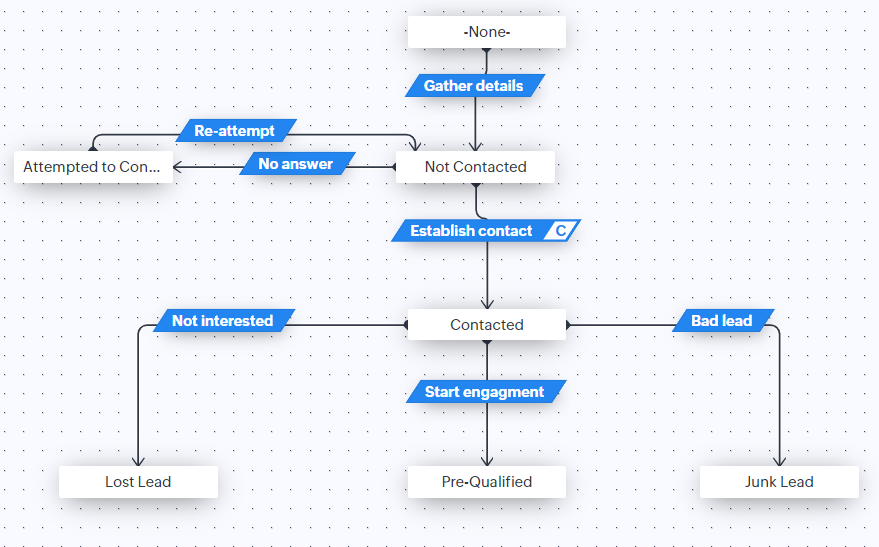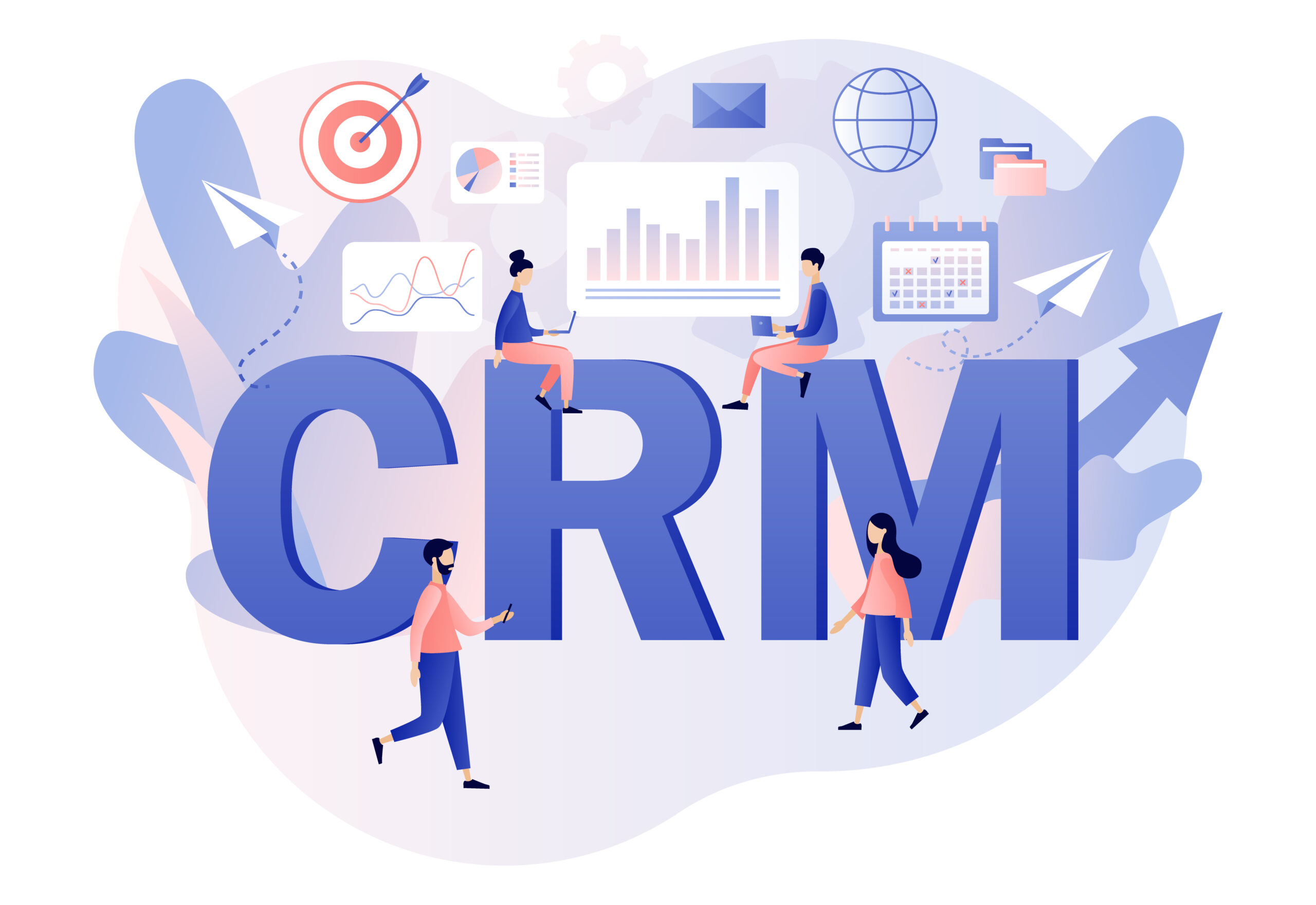Each sales leader or team at least once in a lifetime comes to a problem – salespeople do not use CRM appropriately. And if you ask them why, each of them might give you totally different answers. Someone may say that it’s simply happening because they are lazy.
Let’s be honest – no one likes bureaucracy. Doctors don’t like filling in medical records, teachers – journals, software engineers – task tracking systems, and salespeople – CRM. It’s just the way it is. And what’s more important here is to understand the real problems associated with it. So let’s take a look at what those might be.
Lack of value understanding
First things first. If your team does not see any value in spending their time on keeping CRM well organized, they simply won’t do it. Would you? It’s a leader’s / management team’s task to show this value to the team. But then another important question comes up – is there really any value?
If in essence your CRM serves as a good-looking, interactive excel sheet with buttons – I have bad news for you. There’s really no value in such a system. CRM should be a centralized tool used by several departments within an organization (sales, marketing, finance). And its main purpose should be to make the life of the sales team easier. Not to overcomplicate it instead.
Ask yourself (and sales team) several questions:
- What is the main use case? Is it only for data registry? Or is there something else?
- Would their process be easier / faster without CRM?
- Does it help with their goals achievement?
- Who is it mainly for – them or top management?
If you get “yes” on the first 2 questions – start acting now. The more they use the tool they see no value in, the harder it will be to change their attitude.
No automation
One of the most powerful features that any CRM system has – automation. Of both workflows and processes. And if you don’t use it – you’re losing a big part of value that it can bring.
Everything that may be automated, should be. Starting from simple fields and statuses updates and up to whole process administration.
Must-haves to begin with:
- Automated fields updating upon meeting specific criteria
- Tasks scheduling
- Workflow management (Hubspot – workflows, Zoho – blueprints)
- Automatic scoring
- Required fields not to forget filling in important information
Obviously, the main task of automation is to minimize manual iterations that salespeople have to perform. But another very important point here – to make their process as transparent as possible, not making them think about the next step they have to take.

Too much manual work
While this point is coming from the previous point, it’s not only about automation. Automated processes add a lot of value to the overall sales process. But there are other points which you have to keep in mind. Starting from manual data entry and up to reports creation, data refinement and leads transfer.
Apart from automation, another important point you have to set up – integrations. If you for example use LinkedIn as your main lead generation source – find addons and tools which will help you to make data entry as simple as possible (f.e. Sales Navigator CRM integration, LinkMatch). If your analytics is set up outside of CRM (PowerBI, Tableau) – be sure to integrate them as well. And many other use cases – like invoicing, documents signing etc.
The less manual iterations your team might have to do, the more they will see CRM as a supporting tool and not an inconvenience.
CRM as a monitoring tool
It’s a well known problem which we can’t help but mention. Just because it’s important.
Golden rule – be sure that your team does not see CRM as a monitoring tool. But as the one simplifying their life as much as possible.
It’s not a secret that it has a monitoring function. What’s more important – what kind of monitoring is that. And here everything depends on the management and leadership. Does it make them feel micromanaged? Do they have access to strategic information? Can they see other team members’ data or only theirs? Which KPIs are being tracked?
Each team member must understand that sales without data is very abstract. It’s very hard to analyze the progress, make forecasts and planning without it. Moreover, salespeople might leave. But CRM will stay. And it’s critical for the business to keep all the information in one place and well organized. So be sure that they understand this.
Lack of usage understanding
Another problem which you have to keep in mind – they might simply not know how to work with the CRM you use. Even if they worked with dozens of other CRMs before does not mean that it will be easy for them to adopt a new one. Of course it will be easier, but there still might be problems.
Each CRM is different, and each setup is unique. Every team adjusts the system to be tailored to their processes and policies. And those might be very different to the ones they dealt with before.
The best thing you can do to minimize onboarding and learning team – create a CRM guide. Describe all the policies, workflows and requirements. And don’t forget to add basic definitions. Because in one system the deals might be called “deals”, while others have it as “prospects”, “opportunities” etc. Video explainers will make the adoption process even smoother.
No usage culture / discipline
While it’s very important for salespeople to feel good about using CRM and taking it as a helpful tool, discipline is another critical point here. It won’t make sense to have one if they constantly forget to log the calls. Add meetings summaries. Move the deals through the different stages and only use 2 stages – first and closed won.
As a leader, you have to motivate them to use it appropriately. Build up the right culture.
I love to use the following example. Imagine yourself joining a new company. Very likely there will already be history of past leads, deals and contacts. And you need to know what was happening on the markets which you might be assigned to. As well as leads and accounts there. Will a well organized data be helpful? I’m sure it will.
So manage your records in such a way in which you would want to get them if you were a new team member. Add any information you feel relevant or important.
There is one good practice that may help them with growing CRM management culture. If there is a lead / account that did not work out, and they are not going to continue with those, let them exchange. So if I don’t plan to continue with account X, I will give it to another salesperson to try. When they start getting empty records with empty fields, believe me – they will look at the problem from a different angle. And it won’t be you as a sales leader managing them. Take it as peer to peer training.
And another very simple exercise – no CRM record, no bonuses. Might work well too.
No management standardization
Remember the leads / accounts transfer example mentioned above? Apart from data registry importance, there’s another problem associated with it. They might be managing their records in different ways. One person might be using tags, custom fields and notes that only they might understand. The calls might be logged differently. The flow they use might differ as well.
To eliminate the mess you must be sure that all the rules and management policies are standardized. And that there is a basic ground framework used by everyone is the team. And even if they might be having some unique features, those won’t disrupt the overall process too much. And won’t create unnecessary complications to others.
Another important point here – analytics. If every person has their own management rules, it will be impossible to build a reliable and informative analytical framework. Just because there won’t be any standard which you can use.
Poor analytics
Having all the records in a good state, necessary data filled in is still not enough for the sales team to feel the real value of the CRM system. Cause after all, all the information is just a line in the table. Or deal in the pipeline.
Do they know what their conversion rate is? How well do they progress this week in comparison to the previous one? Is the trend positive or not? What share of the sales plan their latest deal won covers?
Apart from being a unified, standardized and automated data instrument, CRM should also help them understand how they progress and which impact their activities make on the business. You need to be sure that they have access to the analytics which will allow them to analyze it and fix the process if it’s not good enough.
No responsibilities distribution
There’s a perception that good sales managers should be able to do any kind of work – starting from lead generation and up to deals closing. And while from the high level point of view it’s great, from CRM management one – it might be a disaster.
Responsibilities delegation and distribution is a key to successful management. The same goes for CRM. Sales managers don’t like creating records and finding relevant leads. There are SDRs / Lead generators who can cover this part of work. Moreover, spending the time of sales managers, who are able to close great deals, for CRM records creation is not efficient. It will simply cost too much.
It really helps to keep these 2 processes separate – data entry / initial processing and moving the leads down the pipeline. So let each team member focus on their priorities. Lead generators / SDR – to generate quality leads. Sales managers – to close deals successfully.
And one more point to mention – choose 1 person responsible for CRM customization and setup. It will help to avoid the mess. Don’t forget to ask them to document all the changes they do to the system. Keep the rule “if they might be leaving” in mind.
Overcomplication
Everything is good in moderation. If you have automation, supportive tools integrations, decent culture and management discipline working well, be sure to avoid unnecessary complications. I’ve seen examples of CRM setup which used excessive fields updating automation. At the end of the day it resulted into confusion of what was happening to leads / accounts on each stage of the process.
Summary
CRM is a superb tool which can help your team to have their process well organized and structured. And it’s a pity that so many sales teams still don’t use its full potential. If set up right, it can make your people’s work way easier, manageable and meaningful. So be sure to build up a good culture, define standards and policies, make necessary adjustments and explain the value. Don’t overcomplicate. Once they see how great it is, they will never be able to work without it.


